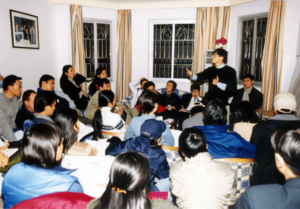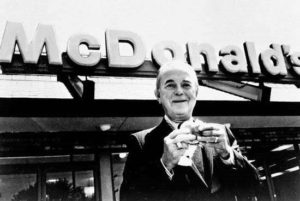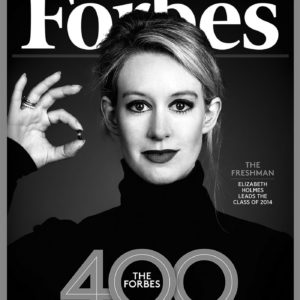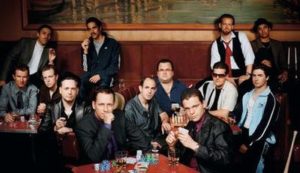Top Qualities of a Great Startup Founder
We are in the business of meeting founders.
At Transition Level, we see hundreds of pitches from founders seeking pre-seed to Series A investment every year.
It’s our view that an exceptional business begins with exceptional founders. When reviewing early stage companies, we look for quality founders, first and foremost.
These are the qualities we look for in our founders:
- Grit and resilience – ability to keep pushing when the going gets tough.
- Unfair advantage – what is your superpower?
- Coachable – willingness to learn, take on feedback and adapt.
- Ambition and relentless drive – unwaivering commitment to the vision.
- Integrity and honesty – be honest and open.
WATCH THE VIDEO –>>> Qualities of great startup founders https://www.youtube.com/watch?v=98QgJe_kNo0
Grit and Resilience
“Many of life’s failures are people who did not realise how close they were to success when they gave up.”
– Thomas Edison
Startups have high failure rates and the journey is fraught with ups and downs. Products can take longer than expected to come to fruition, customers have high expectations and founders can unexpectedly leave. A founder’s journey can at time be brutally difficult.
Great founders are resilient. They don’t give up at the first sign of trouble. They roll with the punches and when the going gets tough, they will get stuck in and find a solution. Despite what many ‘Insta’ entrepreneurs depict, genuine overnight success is almost unheard of.
The less glamorous truth is that it can take a decade or longer of hard work and long hours to achieve success. Founders with grit are in it for the long haul and accept that blood, sweat and tears that will be shed along the way.
Jack Ma, Founder of Alibaba
Chinese billionaire and founder of Alibaba, Jack Ma, is a brilliant example of a founder with grit and resilience. Jack Ma failed exams in high school and scored almost zero on his college entrance exam. When KFC opened in China, 24 people went for a position at his local store. Jack was the only person they didn’t hire.
Jack was rejected from Harvard more than 10 times. By the time he founded Alibaba, he had 4 failed internet ventures under his belt as well.
He is now estimated to be worth 34 billion US dollars (Nov’18)

Source: alibabagroup.com
Unfair advantage
- World-leading domain expertise (experts in an emerging technology);
- Industry knowledge from within corporates or startups ie: are they uniquely positioned to be pursuing this opportunity; or
- Prior experience building a successful company, 2nd or 3rd time founders have been on the journey and learnt many hard lessons along the way.
The PayPal Mafia
PayPal, one of the tech world’s biggest success stories was purchased by eBay in 2002 for $1.5 billion.After the buy out in 2002, many of PayPal’s employees found it difficult to adjust to eBay’s more traditional corporate culture. Within four years all but 12 of the first 50 employees had left.Many of these early employees remained connected and went on to do further business with each other. They are known as the‘PayPal Mafia’ and this group of ex-PayPal employees have gone onto achieve incredible business success.Some of the PayPal mafia include, Elon Musk (Tesla, SpaceX),Reid Hoffman (LinkedIn, Greylock), Peter Thiel (Palantir, Founders Fund), Max Levchin (Affirm, HVF, Slide), plus founders of YouTube, Yelp, Yammer and many more.
Source: Wikipedia PayPal Mafia
Be Coachable
“My best skill was that I was coachable. I was a sponge and aggressive to learn.”– Michael Jordan
Founders often have excellent deep core skills in their area of expertise which serve the business well in early years. Startups however, change very quickly, as does the required skillset which is constantly shifting.
During periods of growth, founders will encounter problems or business issues they haven’t seen before. Most founders will seek out mentors or other founders to help them over the learning hump during this period.
Exceptional founders are coachable. They show a certain keenness and are ‘aggressive’ for learning new skills. Not surprisingly, there are many examples where former professional athletes have successfully transitioned to the business world.
Coachable founders take feedback on-board, listen to suggestions and consider multiple alternatives. This aptitude gives them a distinct advantage as they will climb the learning curve faster than their counterparts – they level-up quicker.
Great founders can recognise the areas they need to upskill in and seek out the right ‘coaches’ to join their team.
Roger Staubach, The Staubach Company.Roger Stauback is a Hall of Fame quarterback for the Dallas Cowboys. After his retirement (and winning two Super Bowls) Roger worked for real estate mogul Henny Miller Jr for six years, learning everything he could. Of his mentor, he said “He was man of integrity, a great person. He was a lot like [legendary Cowboys Coach] Landry. He transferred his strengths to other people.”He went on to create his own commercial real estate company The Stauback Company which sold in 2008 for $613 million.

Ambition and Relentless Drive
“The people who are crazy enough to think they can change the world are the ones who do.“– Steve Jobs
Ray Kroc, McDonaldsRay Kroc started the first McDonalds in his fifties after coming across the franchise while selling milkshake mixers, cross country USA. Ray had tried his hand at many different ventures including selling paper cups, a real estate agent and a piano player.
When Ray encountered the McDonald’s concept, he saw opportunity to scale the chain across the nation due to its unique food production process.
Ray opened the first franchise McDonalds in 1955. It grew to 7,500 outlets in the United States and 31 other countries and territories.

Source: Ray Kroc, Wikipedia.
Integrity & Honesty
“It takes 20 years to build a reputation and five minutes to ruin it. If you think about that, you’ll do things differently.”
– Warren Buffett
Honesty and integrity go hand in hand. As investors, honesty is a trait we value very highly. Often there is a temptation to present only the good things that are happening in your startup. It is far better to disclose any potential issues early, especially when going through the investment process. Best to be upfront than have a potential investor uncover a problem themselves during the due diligence process.
There is significantly more value in an open and transparent relationship, investors want to be in the “inner circle” and helping to solve the most pressing problems.
We need to ensure that we trust the founders that we are backing, and hope that trust goes both ways.
The story of TheranosOne of the most prolific example of dishonesty is the former unicorn Theranos. The company was founded in 2003. The biotech company spruiked a product which needed only a few drops of blood in order to give accurate blood tests. After years of secrecy and raising $400m, some serious doubts were raised as to the efficacy of the technology. Founder, Elizabeth Holmes lost everything. She was charged with fraud in 2018.

